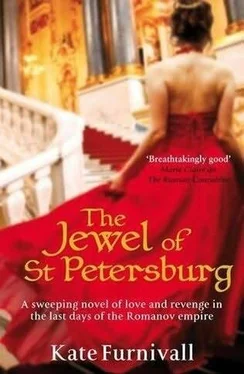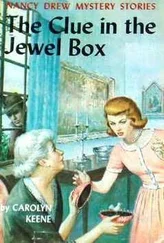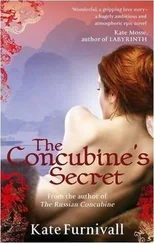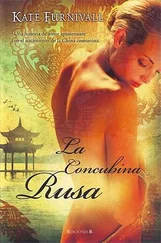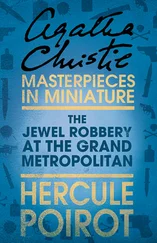“Valentina”-Jens sat back on his haunches and studied her with a lift of one eyebrow-“the maid does our sewing. What are you doing?”
Her needle froze midstitch. She lowered her voice. “Getting ready.”
She slid a golden rouble from her pocket and pressed it into the section of hemline that she had opened up in the plain brown dress that was sprawled over her knees.
His eyes lifted from the stitching to her face. She saw his throat swallow. “My dearest Valentina, have we really come to that?”
“Yes. I believe we have.”
Lydia laughed, crowing with delight as she abandoned her bricks. “Can I play too, Mama?”

LENIN WAS COMING BACK. THE GLORIOUS VLADIMIR ILYICH Lenin was at last returning from his enforced exile in Switzerland. Arkin recognized the moment for what it was: the end of the Romanovs.
After five hundred years of tyranny, they were finished. Now that the people would have a figurehead to rally behind, nothing and nobody would stop them. Not the tsar. Not his troops. Not his pathetic attempts at silencing the outcry of the proletariat by dismissing the Duma. The air spat fury. The streets of Petrograd were on fire. Not just the shops and the capitalist businesses, but the ground beneath the feet of Russians. It was burning. Scorching away the old ways, ridding Russia of injustice and fear.
Arkin lit a cigarette, inhaled as he flexed and unflexed his damaged knee, and looked around his office. It was small, but it was all he required. Posters on the walls: WORKERS UNITE! and VICTORY TO THE PEOPLE! A huge image of a clenched fist and of a peasant stamping on the Romanovs’ double-headed eagle. A desk, a telephone, a cabinet, a typewriter. And stacks of rectangular white cards. Hundreds of them. He kept names on cards, names and details.
On top of the pile in front of him was one name: JENS FRIIS-DANISH ENGINEER. He picked it up between two fingers and struck a match on the leg of his desk. The flame flared. He held it under the card and watched it eat it up as the card curled and crackled and died. He dropped it into the metal bin at his feet.
Very soon. He allowed himself a smile as the flames consumed the final remnants of the card. Very soon. Jens Friis would not exist.

IN THE STABLE JENS WAS BRUSHING DOWN HIS HORSE, HERO, with quick angry movements. He’d just heard that General Krymov had arrived back from the front in the war against Germany. He’d brought tales of thousands dead and a woefully underequipped Russian army. Soldiers were perishing of cold and starvation, and those still alive were marching in boots held together with string, feet rotting in the trenches. Insufficient ammunition. Toxic gases blinding their eyes. No food. No blankets. With no faith in their commanders, despair and misery were making men desert in the thousands.
“Who can blame them?” he muttered, and just then heard a carriage draw up outside his house.
“Your countess for you,” Liev Popkov called out with a grin on his face.
“She’s not my countess, ox-brain.”
The big Cossack liked to turn up in the stables sometimes and took acute pleasure whenever he could in goading Jens into losing his temper. The day Valentina moved out of the Ivanov household and became Jens’s wife, Popkov had departed as well. No one knew quite where he lived now, or how, but in the last few years he’d grown a dense black beard and seemed to relish his newfound freedom. When Valentina was busy in the evening practicing a new piano piece for one of her concerts, she liked to be alone to concentrate, so Jens would wander out to check on Hero and smoke a cigarette under the stars. More often than not Popkov would be out there with a pack of cards and a bottle of vodka.
Only once did they come to blows, and that was over Valentina. It happened late last year just before Christmas, the night that Rasputin was murdered and thrown into the river. Popkov had wanted to tell her that he’d heard that Viktor Arkin had turned up again in Petrograd. Jens had told him no. On no account must he tell her. They’d argued. In the end Jens had used the only language that seemed to register in Popkov’s stubborn brain and knocked him to the ground. Fists had flown.
“What on earth happened to you?” Valentina asked in alarm when he eventually stormed back into the house.
“Popkov happened to me,” he had growled.
She’d laughed uproariously and shown absolutely no sympathy while she bathed his cuts. “You’ll probably catch rabies from him,” she’d teased.
But right now he was in no mood for a visit from Countess Serova. She had never come to his house before, so why now? He gave Hero a bucket of fresh water, and when he looked up he was surprised to see not the countess, but young Alexei, her son, standing awkwardly in the entrance to the stable.
“Alexei! Dobroye utro, good morning. Come on in. Is your mother here?”
The boy came forward eagerly. Hero lifted his head and whickered a soft greeting. The boy had grown tall; his limbs were lanky and at that stage where they are not quite under control yet. Twelve years old and with a clear direct way of examining the world from those quiet green eyes of his.
“She’s in the carriage. Uncle Jens, I’ve come to say good-bye. We’re leaving Petrograd, Mama and I, and I wanted to see you.” He shrugged self-consciously.
“Leaving Petrograd?”
“Mama says it’s not safe here.”
“Where are you going?”
“Paris.”
Jens didn’t want to lose the boy. He placed a hand on the young shoulder, felt the tension in it. “I’ll miss you, Alexei. I’ll miss our rides in the forest.”
The boy nodded, a quick unhappy gesture. “I don’t want to go.”
“Your mother is right. It’s not safe here.”
“What about you? You’re not leaving.”
Jens smiled. “The socialists won’t be interested in me. I’m Danish, so don’t worry, I’m not in any danger.”
Alexei fixed his eyes on Jens. “Are you sure?”
“Quite sure,” Jens lied.
The boy looked relieved.
“Anyway,” Jens added, “I have to stay to look after Attila’s sons.” Two of the white mouse’s offspring still roamed the mouse palace for Lydia’s amusement.
Alexei shuffled his feet.
“What is it?” Jens asked gently.
“I’ve brought you this.” The boy held out a brown paper bag.
Jens took it and let out a low whistle of surprise. Inside lay a diamond bracelet and a pair of gold earrings. “I’m not sure they’ll suit me,” he said.
“No.” Alexei’s cheeks were scarlet. “They are not for you to-” Then he saw Jens’s teasing expression and laughed. He looked quickly around the stable, checking for eavesdroppers, but no one was there. Popkov had disappeared. “Mama has taken all her jewelry out of the safe and is packing it, scattered throughout her clothes and even inside her pots of face cream.”
“Really?”
“Yes. She says they’ll try to steal it.”
“Your mama is probably right.”
“She left out these because she had so many and says these are almost worthless.” He stared at the paper bag. “They don’t look worthless to me.”
“No, Alexei, you’re right. But your mama has jewels of such value, these mean little to her, I expect.”
“So I want you to take them. Hide them. In case you…” He shrugged his bony shoulders again.
“Thank you, Alexei.” Jens was touched and hugged the boy close. “I’ll miss you very much.” He stood back and held him at arm’s length, impressed by the quiet dignity of his young mind. “Make sure you keep riding, won’t you?”
Читать дальше
